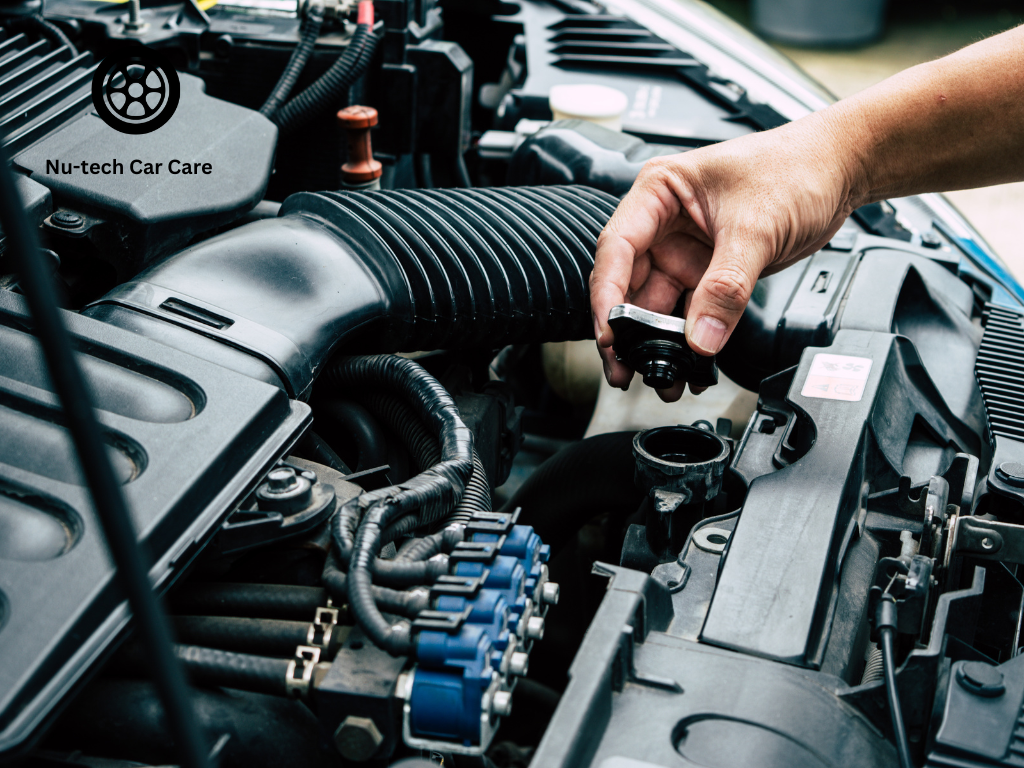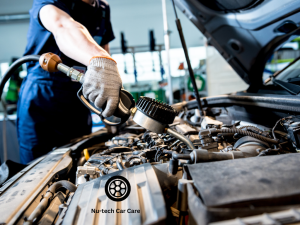Professional car maintenance goes beyond basic car care by incorporating advanced diagnostics, thorough inspections, and repairs that require specialized skills and equipment. Professionals use industry-standard methods to ensure that every aspect of your vehicle functions optimally. This includes engine checks, transmission servicing, brake system repairs, electrical system assessments, and more.
Benefits of Regular Professional Check-Ups
Regular professional car maintenance check-ups help ensure that your vehicle operates safely and efficiently. Key benefits include:
- Preventing Major Repairs: Routine maintenance can identify and address minor issues before they become major, costly problems.
- Enhancing Vehicle Performance: Professionals can optimize engine performance, fuel efficiency, and overall vehicle handling.
- Extending Vehicle Life: Regular maintenance extends the lifespan of your car by keeping it in optimal condition, thus ensuring you get the most out of your investment.
Recognizing Signs that Require Professional Attention

Warning Lights and What They Mean
Modern vehicles are equipped with an array of warning lights on the dashboard that alert drivers to potential issues:
- Check Engine Light: Indicates potential engine issues ranging from a loose gas cap to more serious engine problems.
- Oil Pressure Warning: Shows when there is a drop in oil pressure, indicating possible oil leaks or the need for an oil change.
- Brake Warning Light: Could indicate low brake fluid or an issue with the brake system components.
Unusual Noises and Their Implications
Listening to your car is crucial as unusual noises often indicate underlying problems:
- Squealing or Grinding When Braking: These sounds can indicate worn brake pads or rotors that need immediate attention.
- Engine Knocking: A knocking sound from the engine compartment might suggest problems with the engine’s ability to combust fuel and air efficiently, potentially requiring complex repairs.
Car Tech: Advanced Systems that Need Expert Care
Understanding Modern Car Technologies
Modern car tech are equipped with sophisticated technologies that improve safety, efficiency, and comfort. These technologies include adaptive cruise control, lane keeping assists, automatic braking systems, and advanced infotainment systems. Understanding these technologies is crucial for effective maintenance and troubleshooting.
Which High-Tech Features Require Specialist Services?
Some high-tech features that typically require specialist services include:
- Hybrid and Electric Vehicle Components: Battery systems and electric motors in hybrid and electric vehicles require specialized knowledge and tools for servicing.
- Advanced Driver Assistance Systems (ADAS): Calibration and repair of sensors and cameras used in ADAS need to be handled by professionals to ensure they function correctly.
- Infotainment Systems: Advanced infotainment systems that integrate with mobile devices and provide navigation services require updates and repairs from specialists to maintain their functionality.
Routine Checks Best Left to Professionals

Why Some Maintenance Tasks Should Not Be DIY
Certain car maintenance tasks require professional expertise due to the complexity of modern vehicles and the risk of causing further damage or voiding warranties. Professionals have the training and tools to handle complex systems safely and effectively, ensuring that all aspects of the vehicle function as intended.
Examples of Complex Maintenance Tasks
- Transmission Services: Repairing or servicing a transmission is intricate and requires specific diagnostic equipment and expertise.
- Electrical System Issues: Modern cars have complex electrical systems, and misdiagnosing issues can lead to major failures or safety hazards.
- Suspension Work: Replacing or repairing suspension components often requires specialized tools and alignment equipment to ensure the car handles correctly and safely.
The Role of Diagnostic Tools in Modern Car Maintenance
How Professionals Use Diagnostic Tools to Identify Issues
Professional mechanics use state-of-the-art diagnostic tools to quickly and accurately identify problems within a vehicle’s engine, transmission, exhaust system, and other components. These tools can read the advanced computer systems found in modern vehicles to pinpoint malfunctions and verify the condition of electronic systems.
Benefits of Advanced Diagnostics in Preventing Future Problems
- Precision: Diagnostic tools provide precise information, allowing for accurate repairs that can prevent recurring issues.
- Cost Efficiency: By pinpointing exactly what needs to be fixed, these tools help avoid unnecessary repairs and reduce the chance of misdiagnosis, saving money in the long run.
- Preventative Maintenance: Advanced diagnostics can detect potential issues before they become serious, allowing vehicle owners to address problems early and maintain vehicle performance.
Finding the Right Mechanic or Service Centre

Criteria for Choosing a Reliable Mechanic
Choosing the right mechanic is crucial for receiving quality service and maintaining your car’s longevity. Consider the following criteria:
- Certifications: Look for mechanics who are certified by reputable organizations, such as the National Institute for Automotive Service Excellence (ASE).
- Experience with Your Car Model: Choose a mechanic who has experience working with your specific make and model to ensure they understand the unique needs of your vehicle.
- Reputation: Check online reviews and ask for recommendations to gauge the reliability and quality of the service provided.
What to Look for in a Service Centre Specializing in Advanced Car Tech
Service centres that specialize in advanced car technology should offer:
- Up-to-date Diagnostic Equipment: Ensure they have the latest tools to handle modern car diagnostics.
- Trained Technicians: Technicians should be trained in the latest automotive technology and ongoing education to keep up with new advancements.
- Warranty on Repairs: A reputable service centre will offer a warranty on their work, providing peace of mind that the repairs are covered if issues arise.
Cost vs. Benefit of Professional Maintenance
Analyzing the Cost-Effectiveness of Regular Professional Services
Investing in regular professional car maintenance might seem expensive upfront but can be highly cost-effective in the long run. Regular servicing helps to identify and fix minor issues before they escalate into major repairs, which can be significantly more costly. Scheduled maintenance also optimizes vehicle performance, improving fuel efficiency and reducing the cost of running the car.
Long-Term Benefits of Professional Maintenance on Vehicle Longevity
Professional maintenance extends the lifespan of a vehicle substantially by ensuring that all systems are running optimally and any potential issues are addressed promptly. This not only maintains the car’s value but also ensures it remains reliable and safe over the years. Furthermore, a well-maintained car has a better resale value, offering more return on investment when it’s time to sell.
Maintenance Tips for High-Tech Cars

Basic Care Tips for Keeping Your High-Tech Car Running Smoothly
High-tech cars, with their complex electronics and systems, require careful maintenance to keep running smoothly:
- Regular System Checks: Frequent checks of the car’s computer systems can ensure they are functioning correctly.
- Battery Maintenance: High-tech cars often rely on battery power more than traditional cars. Ensuring that your battery is in good condition and charged properly is crucial.
When to Update Software and Check Tech Features
Software updates are vital for high-tech cars as they can improve vehicle functionality and safety:
- Scheduled Updates: Check with your dealership or manufacturer for updates that can enhance the car’s operating systems.
- Tech Feature Inspections: Regular inspections can ensure that all technological features are working as expected, which is crucial for the overall performance and safety of the vehicle.
Conclusion
Being proactive about car maintenance not only ensures optimal performance but also enhances vehicle safety. It prevents breakdowns, increases reliability, and ensures that all safety features are functioning correctly. Regular professional checks help to maintain the car in top condition and provide peace of mind that your vehicle is safe and efficient on the road.










